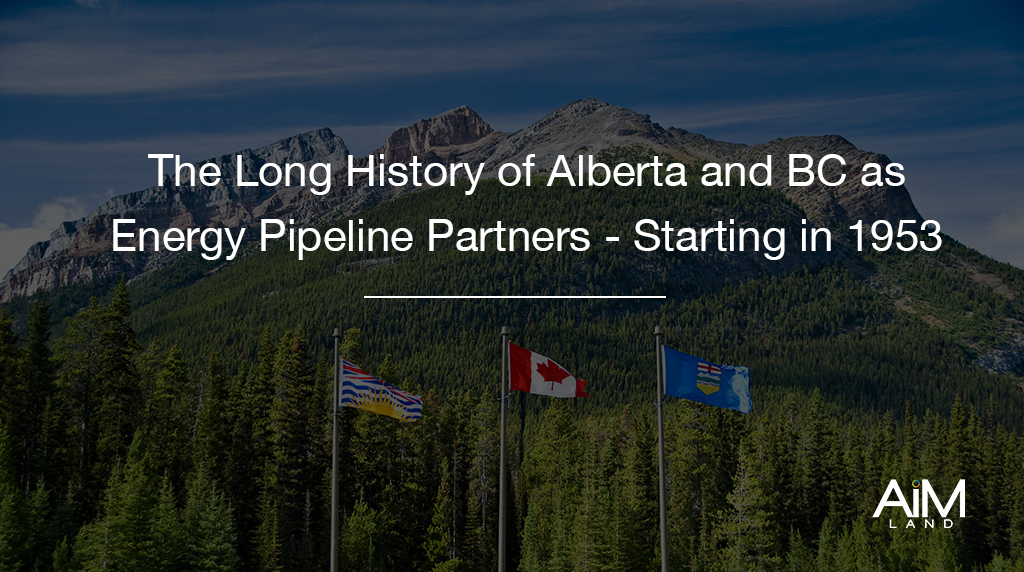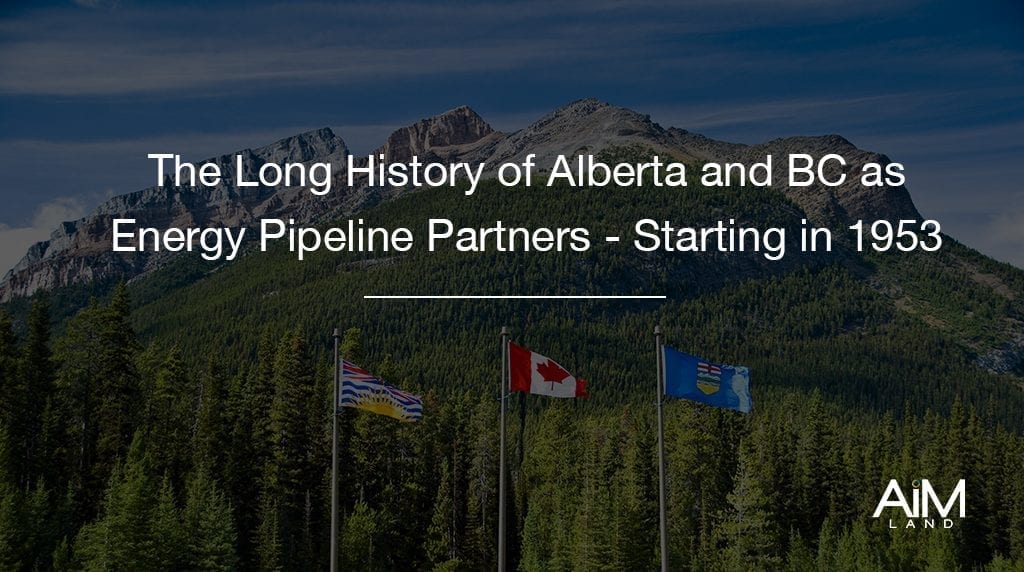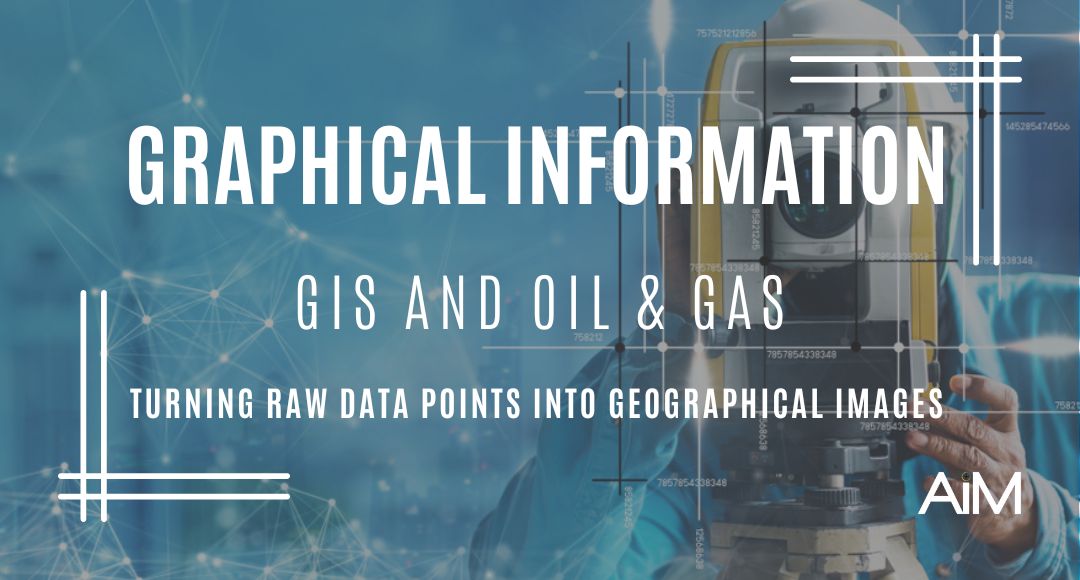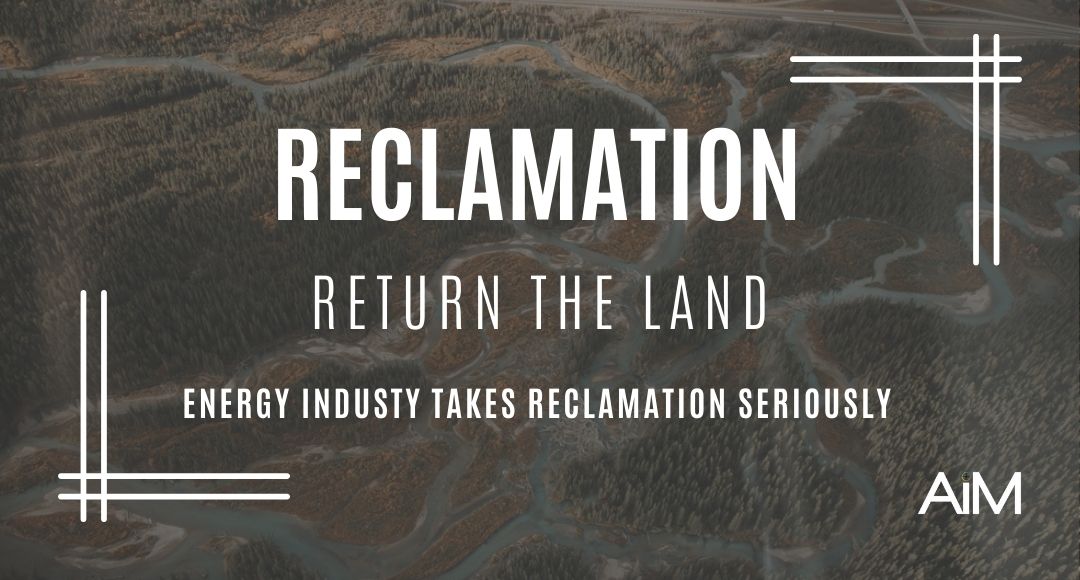
The Long History of Alberta and BC as Energy Pipeline Partners

Canada has a long history of building energy pipelines. Oil companies have been building pipelines in Canada to move petroleum since 1862 after oil was discovered near Sarnia Ontario in the 1850s.
But it wasn’t until the major discovery of oil and natural gas in Leduc in 1947 that two major long-distance oil and gas pipelines, which crossed interprovincial and international borders, were built, spanning the country.
The first opened in 1950, which connected Edmonton to refineries in Saskatchewan, Manitoba, Ontario and parts of the northern United States. Trans Mountain Pipeline, the second interprovincial pipeline, started oil deliveries to the Vancouver area and the northwestern U.S. from Edmonton in August 1953 after speedy construction across the Alberta and B.C. mountains.
These two major pipelines carried the overwhelming majority of Alberta’s crude oil to markets across Canada and parts of the United States. It is suggested that this first wave of oil distribution is responsible for the extraordinary economic growth and prosperity in Canada.
This capacity expanded greatly from the 1970s to 2010s with the construction of additional pipelines linking Canadian oil and natural gas fields with refineries in Alaska, Illinois and Oklahoma. In the last decade, the push for an expansion of existing pipelines is part of a broader effort to ship more of Canada’s oil to global consumers. Canada stands to gain billions of dollars each year from shipping oil across the Pacific Ocean as the global demand for petroleum products is not expected to decrease until at least 2050.
Controversy and political upheaval have always been associated with building and expanding pipelines – this is not a new scenario for the energy industry. For example decades ago, after one contentions decision was made in the US to shelve a natural gas pipeline expansion that was to go from Alberta, through British Columbia into the US, the energy producers of the time began to refer to that day, June 18, 1954, as Black Friday. https://www.jwnenergy.com/article/2019/3/canadas-history-pipeline-challenges-longer-you-might-think/
With patience and innovation, pipeline projects eventually get built and companies like AiM Land continue on, behind the scenes, working with their neighbours in British Columbia, Saskatchewan, Manitoba and Ontario on large and small scale pipeline expansion projects.
As history proves, controversy always surrounds expansion, but pipelines always get built. This time however, when theses pipelines are completed, we as Canadians can expect to bask in a second wave economic growth and prosperity. We just have to stay on point, clear in our direction and eventually we will get there.










